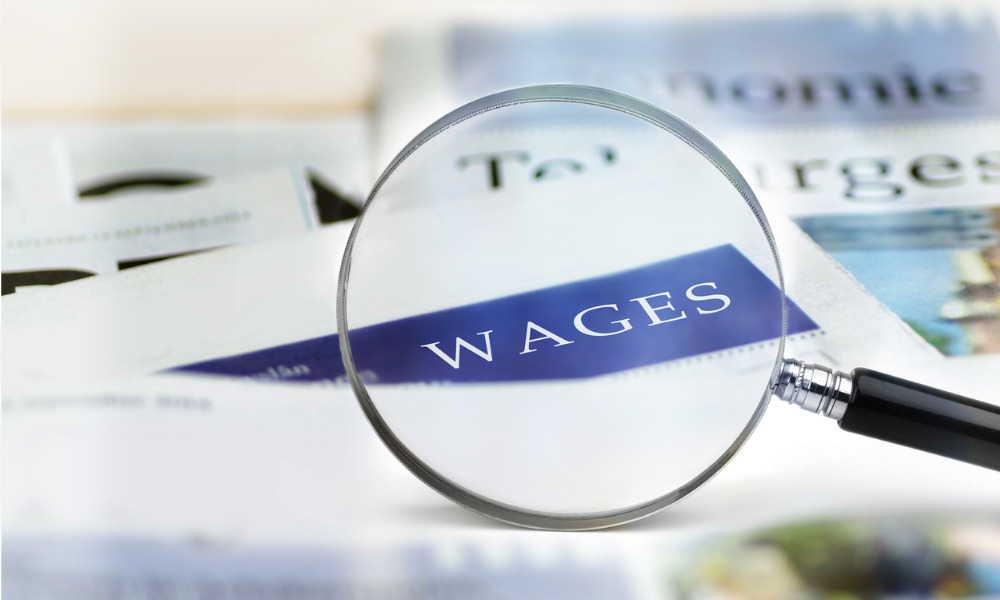
Experts reveal the top three misconceptions employers need to know

Major changes to annualised wage agreements come into effect today with employers facing harsh penalties if they fail to comply.
Today (March 1) marks a year since the new rules under annualised wage agreements for 18 different awards began.
Employers must now begin carrying out an annual reconcilliation of their employees' "all in" salaries, ensuring there is no gap between the annualised wage agreement and what they would have earned under the modern award.
The new rules meant greater record keeping responsibilities for employers to ensure their workers are being renumerated correctly, after the FWC began zeroing in on underpayments.
At the recent Sage virtual masterclass on annualised agreements, HRD heard from Athena Koelmeyer, managing director and principal at Workplace Law.
She outlined some of the key misconceptions around award compliance which could land employers in hot water come March 1.
Employers who think they do not have employees covered by awards
Koelmeyer said the 121 Modern Awards were designed specifically to cover the vast majority of Australia’s workforce.
“This misconception is something I hear reasonably regularly,” she said. “It’s very unlikely that any Australian employers do not have award coverage within their workplace.”
While these March 1 changes relate to specific award categories, the range of industries is vast.
Including banking, finance and insurance, to mining and manufacturing, these awards will apply to a large chunk of Australia’s workers.
Read more: Frontier Software CEO on the power of paying it forward
The roles covered by a certain award can also vary widely.
For example the Clerks Award includes employment roles which may not typically be assumed as a clerking position – like jobs within marketing and payroll.
So, the first thing employers need to do is look at their employees and assess who will be affected by the upcoming award changes.
Employers relying on the Better Off Overall Test (BOOT)
Koelmeyer said another common misconception is that if an employer applies the BOOT test to employees' salaries and passes, they won’t be falling foul of modern award regulations.
“The BOOT is a test that is administered by the FWC when looking at enterprise agreements,” she said.
“It’s not a sufficient defence to non-compliance with the awards. It simply doesn’t work like that.”
While an employer may believe they are paying an employee an adequate amount for their role, over time they may become out of touch with the pay increases that an employee’s award stipulates and find themselves facing an underpayment claim.
Added incentives do not constitute renumeration
When it comes to calculating annualised agreements, the FWC’s framework is black and white. Added “handshake” incentives like free tickets to events or gifts cannot be used to determine an employee’s salary. Again, Koelmeyer said these incentives are not a defence against underpayments and they won’t stack up in front of the FWC.
The factors that employers can use to determine an annualised wage include:
One of the biggest changes brought in last year was the amount of record keeping the employer must comply with to prove an employee's annualised wage is correct.
The annual wage agreement provided to employees must include:
But employers must also keep a record of an employee’s start and finish times, as well as unpaid breaks taken, and this record has to be signed by the worker at the end of each pay cycle. To overcome this challenge, many businesses have brought in technology for employees to log electronic timesheets.
Read more: Partner calls destroying notes after internal bullying investigation ‘standard practice’
These records are vital for the annual reconciliation which must take place every 12 months, or when the arrangement or employment ends.
Koelmeyer said the new rules essentially require employers to keep two sets of books – one data set to capture the amount paid under an annualised wage agreement and another to show the amount required under the modern award.
This would enable employers to spot gaps between the two and fix the renumeration accordingly. If employers don’t prepare for the changes now, they risk accumulating underpayments which will cost them a headache in the long run.